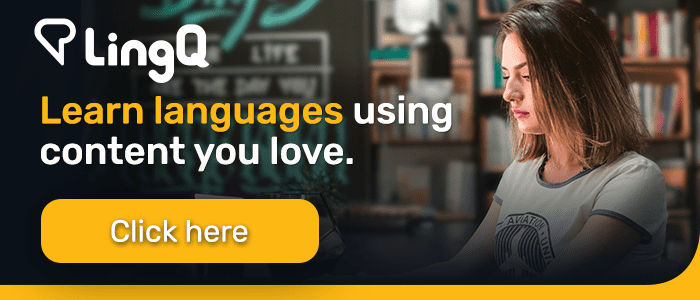Learn French Online with LingQ
What is your Raison D’etre for learning French?
The COVID-19 Pandemic was a game changer for many of us. Our once busy lives transformed overnight into monotonous, continuous bouts of cabin fever. As a busy attorney, my drastic change of schedule was traumatic. Prior to the pandemic, I was accustomed to being in at least two different courts each day. With the pandemic, I was stuck at my office with no clients and no work. Having nothing to do, I decided to focus my time on improving my skills for a post COVID-19 world.
As an immigration attorney, fluency in other languages is a huge plus! I have a sizeable number of clients from Haiti. In addition, my wife and I do a lot of humanitarian work in Francophone Africa. With that in mind, I decided to study French. It should be noted, that while the majority of my Haitian clients do not speak French, my study of French made fluency in Haitian Creole SO MUCH EASIER because I established a solid base before tackling a French-based creole language.
If you’ve studied French, you’ll know that the language has various oddities that make it difficult to learn: tons of the letters that aren’t pronounced, false friends, and the huge difference between formal and common French. Through it all, my reason for learning French pushed me forward. I looked forward to speaking with our partners in Congo and Rwanda, as well as the children in those countries. I eagerly awaited the chance to build enough of a base to begin learning Haitian Creole, and develop a chance to speak with my clients without the use of “interpreters” that oftentimes “paraphrase” (charitably put) what you say.
Without a true purpose for your language learning, the chances of success are slim. No matter the language, learning a language is tough. It’s incredibly fun, but it takes persistence and a willingness to break through the monotony that will inevitably arise. When confronting the peculiarities of the French language, or any language, you’ll need something motivating you to get to the other side.
Using LingQ to grow your vocabulary
Before my foray with French, I was fluent in Spanish, English, Italian and Portuguese. Obviously, each of these languages aided me greatly. If you’re fluent in any of those languages, the following will be helpful.
LingQ was instrumental for my language learning. When I began studying French, I would do cold reads of various stories. I knew NOTHING except “merci”, “bonjour,” and that’s about it. I remember reading the stories and being clueless as to the vocabulary. Through these cold reads I began to assess the language. It’s something I often do with other languages. I did it with Italian and Portuguese, and after French, with Catalan, Norwegian, and Indonesian.
First, I look for words that I know or recognize. With my linguistic background, I saw many words that had similarities to other languages. I would create LingQs with those words to gain confidence. Then, the hard work: reading and learning the words with which you’re unfamiliar. Many people do flashcards to reinforce vocabulary. For me, that was not an option because I find flashcards incredibly tedious, monotonous, and artificial – but to each their own! Rather, I’d find interesting stories, or download French Youtube videos to my account and read the transcripts. In doing so, I allowed my brain to repeatedly see words and become familiar with them over time. I found that approach much more natural, and as a result, less stressful.
Dump the flashcards and use what you’re learning
TALK! That’s the key to language learning. Employ what you’re learning on LingQ for practical use. Everyone has a different philosophy on when to start talking. Some prefer talking right away, while others prefer talking after developing a solid base. I tend to start looking for language tutors at around 1,000 words of comprehension. The way I see it: there’s no point in beginning a conversation if you don’t have any words in your arsenal.
When you do have the vocabulary, start practicing. It’s difficult and awkward at first, but it’s well worth the effort. Tutors are cognizant of the struggles of language learning and are overwhelmingly sympathetic and willing to tailor lessons to your level. I’ve found that my use of LingQ increases a bit more on days I know I’m going to speak with a tutor – so it’s another way of reinforcing the language.
Consistency is KEY
Be consistent in your studies. I’d recommend at least 30 minutes a day using LingQ. Still, the key is daily use, so if it’s only five minutes a day, that’s still a lot better than 0. Those five minutes over a year will add up to 30 hours in a year.
To be consistent, you’ll need to find interesting content in your language. With French, LingQ has tons of stories, articles, etc…. Further, you can add to the app with content you find interesting on Youtube. I tend to listen a lot to Inner French podcasts that are transported to LingQ. With French, there’s really no excuse. There’s content galore for all types of learners. LingQ is the best way to learn French online because it allows you to learn from content you enjoy!
Hopefully, this quick summary helps. Obviously, language learning is more complicated than a few paragraphs, but I hope this introduction will whet your appetite to begin or continue your language learning journey.
***

Eduardo González is married with 4 daughters. He is a trial attorney with a focus on criminal defense and immigration law. He began his language studies at the beginning of the COVID-19 pandemic. Originally from Puerto Rico, Eduardo learned 6 languages to a conversational level during the pandemic (largely with LingQ). He is currently actively learning three others and more in the pipeline.

